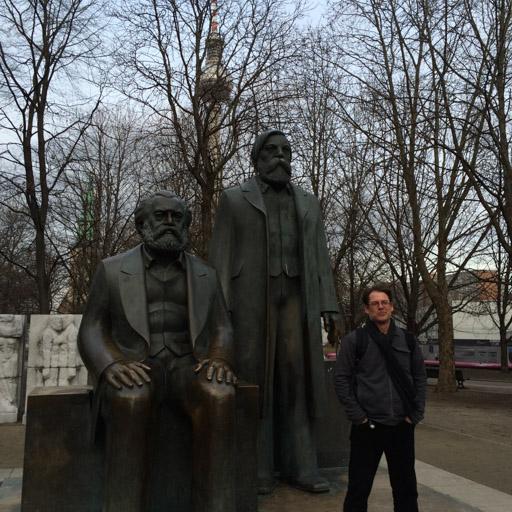
Dr. James Freeman
- Lecturer, Geography, Planning and Environment
Are you the profile owner?
Sign in to editResearch areas: Urban social, cultural and economic geography, Public space and urban popular culture, Urban political economy and Latin America.
Contact information
Email:
Biography
Dr. Freeman received his BA in Development Studies, his MA in Geography and his PhD in Geography at the University of California at Berkeley. He began teaching in the Department of Geography, Planning and Environment in 2003. In 2009 he was a visiting researcher at the Institute of Urban and Regional Planning and Research (IPPUR) at the Federal University of Rio de Janeiro (UFRJ). Dr. Freeman teaches a broad range of human geography, urban geography and urban planning courses. His teaching and research center around the social, cultural and economic geography of the Latin American city; citizenship, popular culture and public space; social theory.
Research interests
Mega-events and favela policy in Rio de Janeiro.
The politics of popular culture and public space in Rio de Janeiro
Popular geography and symbolic discontent in the Latin American City
Teaching activities
GEOG 210 - Geographies of Global Change
GEOG 220 - Place, Space and Identity
GEOG 330 - Urban Geography
URBS 230 - Urbanization: Global and Historical Perspectives
URBS 481 - Urban Planning in the Developing World
Selected publications
- Freeman, James & Marcos Burgos. 2016. Accumulation by Forced Removal: The Thinning of Rio de Janeiro’s Favelas in Preparation for the Games. Journal Of Latin American Studies, 1-29.
- Freeman, James. 2014. Raising the Flag over Rio de Janeiro’s Favelas: Citizenship and Social Control in the Olympic City. Journal of Latin American Geography. 14(1).
- Freeman, James. 2012. Neoliberal accumulation strategies and the visible hand of police pacification in Rio de Janeiro. Revista de Estudos Universitários 38 (1):95-126.
- Freeman, James. 2010. From the Little Tree, Half a Block Toward the Lake: Popular Geography and Symbolic Discontent in Post-Sandinista Managua. Antipode 42 (2): 336-373.
- Freeman, James. 2008. Great, Good and Divided: the politics of public space in Rio de Janeiro. Journal of Urban Affairs 30 (5):529-556.
Participation activities
Selected conference presentations
- Utopia on a Shoestring: The Making and Unmaking of Revolutionary Managua, Living Cities of the Second World Conference, St. Petersburg, Russia, 27 February to 2 March 2015.
- Mega-event led capital accumulation and the strategic thinning of Rio de Janeiro’s favelas, Second International Mega-Events and the City Conference, Rio de Janeiro, April 2014.
- À qui profite la pacification? La colonisation des favelas de Rio de Janeiro faite par l’État et le capital privé, Les Midis Brésil Brunché, Centre d’études sur le Brésil, UQAM, Jan 2014.
- Raising the flag over Rio de Janeiro’s favelas: Citizenship and Social Control in the Olympic city. Annual meeting of the Association of American Geographers (AAG), Los Angeles, April 2013.

